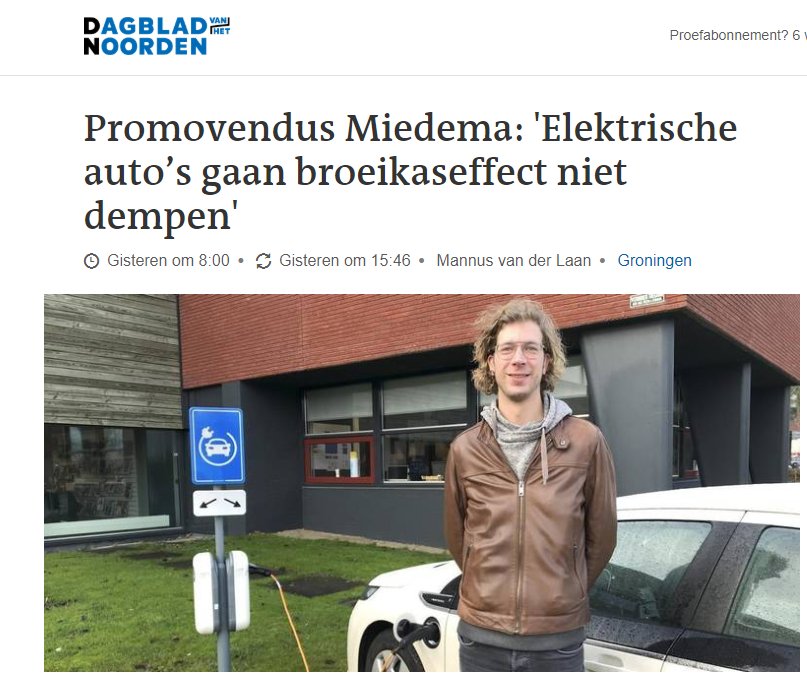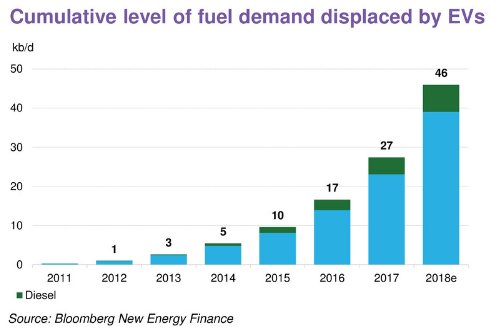That was the calculation a Belgian prof. made on TV this week.
The number was used by MANY Dutch and Belgian newspapers.
But it's 20x too high or so.
ad.nl/auto/elektrisc…
Prof Damien Ernst assumed producing a 60 kWh battery costs
18696 kg or
312 kg/kWh.
That's an outlier in the literature.
Average of studies is ~140 kg/kWh theicct.org/sites/default/…
Best modern study I know of pegs it at 106 kg ffe.de/attachments/ar…
All of a sudden 18696 kg becomes
6400 kg or
3900 kg.
And that's just the start!
That's a mistake.
He forgot that gasoline needs to be produced first.
This emits ~520 grams per liter.
co2emissiefactoren.nl/lijst-emissief…
So his estimate goes from 13.68 kg to 16.8 kg CO2/100km emission for gasoline cars.
11/20=0.55 kg CO2/kWh.
But the average mix in the EU is 0.296 kg CO2/kWh.
agora-energiewende.de/fileadmin2/Pro…
Belgium is 0.257
(The Netherlands 0.413 co2emissiefactoren.nl/lijst-emissief…)
So 11 kg becomes 0.257*20=5.14 kg/100km.
A conservative estimate of EU emissions over the 19 years lifetime of the car (even accounting for the fact that's it's used more in the first years) is 0.2 kg/kWh.
So 0.2*20=4 kg/100km.
So 0.04*20=0.8 kg/100km.
That''s all very different from the combustion engine's 16.8 kg/100km!
With the Belgian mix: 16.8-5.14=11.66 kg/100km or 0.12 kg/km
With the average EU mix over the lifetime: 16.8-4=12.8 kg or 0.13 kg/km
With 100% wind and solar: 16.8-0.8 or 0.16 kg/km.
What does all this teach us?
On the Belgian mix you save 0.12 kg/km.
6400/0.12= ~55 000 km
So it takes about 55 thousand km to earn back a conventional battery on the current Belgian energy mix.
On the average EU mix over the lifetime you save 0.13 kg/km.
3900/0.13= ~30 000 km.
So it takes about 33 thousand km to earn back a state-of the art battery on the EU lifetime mix.
So state of art batteries on 100% renewable energy: 3900/0.16= 25 000 km to battery pay-back.






